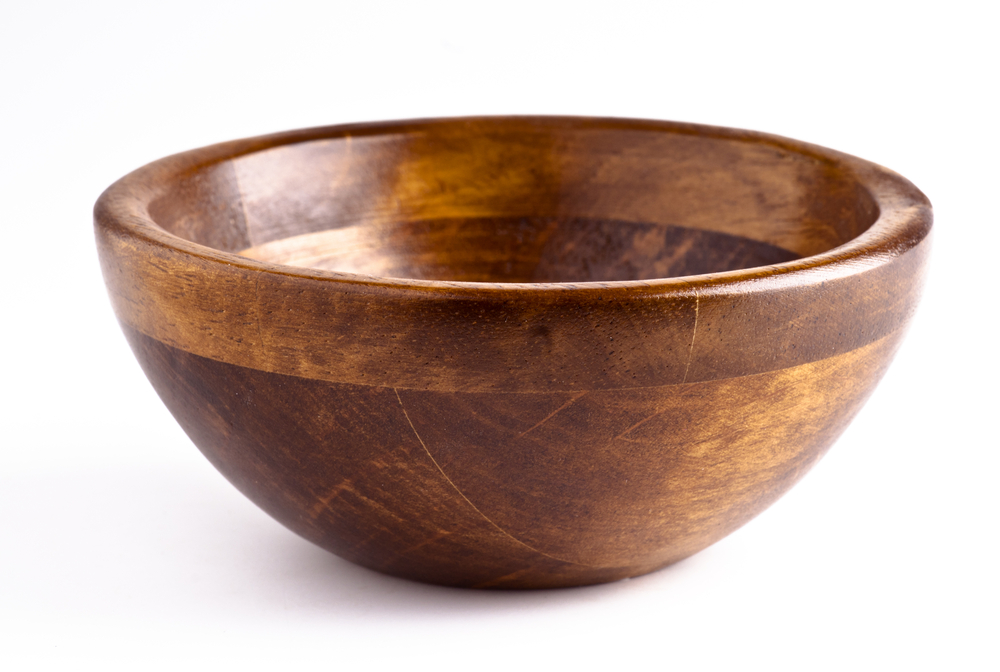
by Ashley Haupt | Jan 9, 2014
It’s the year of our Lord 2014. Could the apostle Paul ever have imagined such a time? Air Force stealth drones are zipping around enemy lines undetected, NASA is sending an unmanned spacecraft to Mars in September, and the FDA will be looking to approve a bionic suit to restore mobility to paraplegics this year. The children born this year, according to Time magazine, will be the heaviest in recorded history and the most dependent on technology.*
The sand seems to be zipping through the hourglass in this day and age. Science, technology, health care treatments are pushing forward to new frontiers and our symbiotic relationship with our smart phones grows ever more codependent. How do Christians and the Bible stay relevant in such times?
We don’t. In our crazy, distracted age of vibrations, beeps, and noisy notifications, a little irrelevancy might be just the thing that is needed. Attention, focus, and the choice to slow down may be the necessary difference to cause people to wonder what sets us apart. Putting away your phone to have dinner, listening intently to the person you are with, and actually stopping to pray when you say you will are habits that could easily be gone with the wind if we don’t make effort to retain them.
Attentiveness, concern, and consideration will never go out of style and may become an increasingly rare commodity. No one will be impressed with your newest iphone upgrade if you don’t put it down long enough to listen and engage with them. And as for the Bible becoming obsolete, I’m not worried about that. This morning I read these timeless words:
Who can discern his errors? Forgive my hidden faults. Keep your servant also from willful sins; may they not rule over me. Then I will be blameless, innocent of great transgression. May the words of my mouth and the mediation of my heart be pleasing in your sight, Oh Lord, my Rock and my Redeemer (Psalm 19:13-14).
Surely this prayer is for every generation in every age; it will always be relevant. No matter how sophisticated our technology becomes, we each still have hearts ready and willing to sin and spirits in need of cleansing and regeneration.
We will never outgrow our need for the gospel, for Christ. Jesus Christ is the same yesterday, today, and forever and never will we see the day when technology can make atonement for souls. We can use technology for good and for the kingdom, but let us never be guilty of neglecting to worship the One who is always worthy of all praise.
*Time magazine, January 2014, pgs42,44

by Ashley Haupt | Dec 16, 2013
Dear Susanna,
I try to imagine what it will be like to be you. You are cradled in your big brother’s arms in the light of the Christmas tree while lullabies play over you. Occasionally, he croons a couple lines into your ear. Eventually, the soft notes work their sleepy magic over both of you, and big brother nods off too.
Held. You are held by so many hands and arms and hearts.

This is what I think family does for us, or maybe what it is meant to be, at its finest, though it does fall short. We hold each other when we fall down, fall asleep, falter, fall into sin, fall prey to evil. We hold one another up when the world is not looking, doesn’t care, doesn’t see. And you, dear girl, have so many to hold you–what will that be like for you? I do not know. So much love awaits your little eyes that struggle to see each face before you. I pray we will not spoil you, but that your little heart will be ready and eager to love and bestow affection because you have known so much love.
Right now, Susanna, you’re two weeks old– so fragile and needy. But under our competent facades, all of us are so needy. We need comfort and affection and trust and provision. We need money and esteem and affirmation and friends. We need spouses and jobs and exercise and food.
 Family can be the trusses that frame a soul in the making. Our personalities grow in the framework and are shaped by it– all of us, a mixed bag of good and bad. So, while my hope for our family is that we would hold one another in so many ways, I don’t hang all of my hope on family. And this is grace.
Family can be the trusses that frame a soul in the making. Our personalities grow in the framework and are shaped by it– all of us, a mixed bag of good and bad. So, while my hope for our family is that we would hold one another in so many ways, I don’t hang all of my hope on family. And this is grace.
It’s grace because family will fail at times. It’s grace because that is not the end of the story. Family is not our Savior. It was never meant to be. That’s why there’s hope for the most disillusioned individual begot by the most dysfunctional family.
The hope is Christ. To ultimately hold and heal and make holy.
Our family will accomplish these things to the extent we fill with Christ, let Him shine through.
Susanna Grace, youngest daughter in a family of six, His grace to you is great. Many hands will hold you. May your soul fill with our love, His love, and His Spirit and may you be a conduit to pour it back out on a hurting world.
Then may you ever be filled up again and again.
Love,
Mama

by Ashley Haupt | Nov 25, 2013
I am at the tail end of my fourth pregnancy in six years, and my body has struggled this time. I contracted pneumonia for the first time ever in early September, and the respiratory problems simply did not go away after that.
After another round of pneumonia, bronchitis, and two successive colds, by early November, I was getting discouraged and desperate. I went to see my doctor, and she confirmed the latest misery was sinusitis.
Each of my pregnancies had been characterized by good health and no complications, so I asked my doctor what was happening this time. With an enormous amount of sympathy, she confirmed what I feared: I might not get better until the baby comes (at that point, five weeks away). She felt I needed steroids to completely clear out the respiratory problems, but those are not baby-friendly. I went home discouraged.
I was so tired of being sick and tired. Even one good day of just being pregnant, not sick and pregnant, would be wonderfully welcome. I tried to adjust my mindset: this is the new normal.
My spirits were low, and my faith weak. I sat down the next day to do my bible study on James (Beth Moore: Mercy Triumphs Over Judgment). That day happened to be on James 5:14-15, “Is anyone among you sick? Let him call for the elders of the church, and let them pray over him, anointing him with oil in the name of the Lord.” To say it was appropriate for my situation would be an understatement.
My husband Tim is a pastor and by the time he came home, I was ready to ask him to follow the prescription given in Scripture. I wasn’t sure how he would respond; in my 30 years of being a Baptist, I haven’t seen this happen.
To my surprise, he agreed eagerly and asked if we might make it a focus in our Wednesday night prayer service the following evening. My weakness and discouragement were such that I agreed, even though I knew I would experience some embarrassment at being the center of attention. Whether God chose to heal me or not, I knew I needed prayer because I felt like I was losing the will to fight the good fight.
On the following night, the faithful core of our church gathered for prayer as usual. Tim opened up the Bible to James and taught on 5:14-15, walking carefully through the verse and emphasizing both God’s power to heal and also His sovereignty to choose.
At the end of the teaching, he called me up along with two men who are leaders in our church. He had me kneel and began to pray as he also massaged a small amount of olive oil onto my forehead. My tears flowed down as he and the other two men prayed for me.
I didn’t experience the lightning bolt of healing that night that others describe. In fact, the next two days were pretty grim as I came down with a touch of the stomach flu (it was passing through our house from our three kids).
But after that, the tide turned. By the time Sunday rolled around, I was well enough to go to church morning and evening. And when I came to the one week mark on the following Wednesday, I had made a 180 degree turn around.
My nasal passages were clear, my energy had returned, and my spirits were high. I felt good for the first time in a long, long time. My health has continued to improve and I feel like I’ve been given my life back.
I don’t claim to understand much about the healing ministry, but my experience taught me three things:
1. Vulnerability is necessary to experience the unity of the body of Christ. It’s humbling to admit to others just how much you really are hurting or struggling, but when you do, the body steps in and carries you to Christ in a way that is mysterious and powerful.
2. The church is strengthened and encouraged when unified in prayer efforts. I have seen this same Wednesday night group become as intense as a labor and delivery room, praying in earnest for the healing of a hurting church member. The Holy Spirit dwells among us in power and God is pleased to hear our prayers.
3. Scripture is our sound authority. We don’t have to understand every aspect to practice obedience to the commands given to us. It doesn’t have to be a lightning bolt revelation to create genuine change in our lives. Real change can happen in increments, over minutes and hours and days, like a plant growing imperceptibly.
Over the course of a week, I went from miserable and struggling to alive and whole again. My faith and my body were restored, just in time for the holiday seasons approaching and the last lap of my pregnancy. So much life and family time is unfolding ahead of me, and God has restored my health so I can serve and praise Him.
Now that’s something to be truly grateful for this Thanksgiving.

by Ashley Haupt | Oct 22, 2013
The other day, my husband Tim and our four-year-old, Ben were working a puzzle together, and Benjamin was saying that he is the best puzzle worker, even better than Daddy. I was half-listening as I worked in the kitchen and I said,“Oh I think Daddy is a really good puzzle worker, too.”
And he said, “Yeah, me and Daddy are the best puzzle workers, better than you and Abby.” So I stopped and asked, “Why do you have to be better than someone? Why can’t you just be good?
I looked at Tim, “Is this guy thing?” And he said, “Yes. Yes it is. Because we don’t want to just be good; we want to win.”
How do we win at life? In Matt. 16:24-27, Jesus tells his closest friends the secret.
“If anyone would come after me, he must deny himself and take up his cross and follow me. For whoever wants to save his life will lose it, but whoever loses his life for me will find it. What good will it be for a man if he gains the whole world, yet forfeits his soul? Or what can a man give in exchange for his soul? For the Son of Man is going to come in his Father’s glory with his angels, and then he will reward each person according to what he has done.”
Winning in the kingdom of Christ is all about dying and losing. But it’s not the kind of death that creates vacuous emptiness and pain. Rather, it’s seed-death, the shell cracked and emptied to allow something new and beautiful and nourishing to spring forth.
In his sermon, Don’t Waste Your Life, John Piper says, “We have to make radical choices about where our treasure is. Powerful forces are at work angling to get you to waste your life. It will take a massive work of grace to rescue you from this culture, and many of you are totally enslaved.”
He specifically addresses his generation, approaching retirement: “Billions of dollars are invested every year to persuade people my age (60’s) to waste the rest of our lives. We’re told ‘You’ve worked for it, now enjoy it.’ So people in their retirement years are spending 20 years of play, leisure, and ease while the world: illiterate, poor, without clean water, unevangelized sinks under the weight of people playing bridge, fishing, collecting shells, and golfing their way into the presence of King Jesus“ (quote is abridged).
C.S. Lewis wrote, “You cannot take all luggage with you on all journeys; on one journey, even your right hand and your right eye may be among the things you have to leave behind” (The Great Divorce, preface).
Understanding what it takes to win helps me to avoid wasting my life. And I could do it, so easily, worrying about so many things that don’t matter, bogged down by the cares of the world, and failing to trust God and His plans for my life. But I don’t want to waste it, not a day. I don’t want to enter the presence of King Jesus with nothing to show but a shell collection of all my own cares and concerns.
Lord Jesus help us to see the bigger picture. Teach us the painful process of death so that we may live the life that is truly life.

by Ashley Haupt | Oct 10, 2013
Imagine a woodcarver with a chunk of wood. To turn that piece of wood into a vessel, a cup or a bowl, he must carve out of the center, stroke by stroke hollowing it out into usefulness. So it can hold something.
Our Creator uses our sufferings as a woodcarver’s tool. He doesn’t see suffering as we do. We see it as something to avoid at all costs, instruments of evil, or bad luck. He sees sufferings as tools for sanctification and future glory.
Through our sufferings, God hollows out greater depths in us, his vessels, so we can hold more of the grace and glory of Christ. Those who have never walked through hard valleys may struggle to have grace for suffering people. They haven’t yet been carved out by pain.
But those who know the shadow lands, and walk through them in the companionship of Christ, come out on the other side deeper — carved out, hollowed and filled to the brim with grace. When they meet a suffering companion, they brim over with grace and compassion, spilling it onto the hurting person. And He will walk us into paths to intersect with those who have suffered similarly to us.
Our strengths can be used for God’s glory but they can also lead us to pride and to self. But our humanity will always cause us to long for a Savior, and our weakness will always lead us to Christ. My grace is sufficient for you; my power is made perfect in weakness (1 Cor. 12:8).
When I am weak, then I am strong. The end of self can be the beginning of deeper intimacy with Christ, as I fully comprehend my need for a Savior, now and forever. I wish I could be stronger, healthier, wiser, kinder, better. But I can only be me, here and now, where the present intersects eternity, and I’ve been given just a patch of grass on the great lawn of history.
Once I confront this knowledge, shake hands and agree to be friends with my limitations, I find that I am happier and healthier. I’m growing in grace.
In The Screwtape Letters, C.S Lewis wrote that God takes some of his special favorites through the hardest and darkest valleys because that’s where he transforms their character and teaches them to trust him.
We, too, can trust in times of suffering, that they are hand-picked for our sanctification and Christ’s glory.



 Family can be the trusses that frame a soul in the making. Our personalities grow in the framework and are shaped by it– all of us, a mixed bag of good and bad. So, while my hope for our family is that we would hold one another in so many ways, I don’t hang all of my hope on family. And this is grace.
Family can be the trusses that frame a soul in the making. Our personalities grow in the framework and are shaped by it– all of us, a mixed bag of good and bad. So, while my hope for our family is that we would hold one another in so many ways, I don’t hang all of my hope on family. And this is grace.

